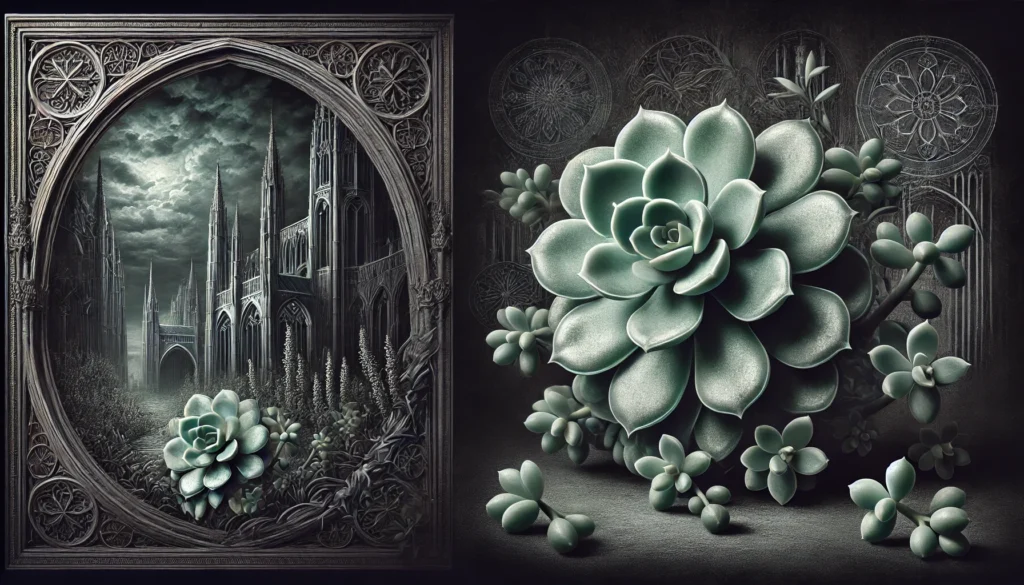

Home » Cat Plants » Is the Silver Jade Plant Plant Harmful to Cats?

The Silver Jade (Crassula arborescens), also known as the Chinese Jade, Silver Dollar Plant, or Money Plant, is a popular succulent houseplant. While not causing allergies in cats, the Silver Jade is actually toxic to cats if ingested.
All parts of the plant contain unknown toxic principles that can lead to poisoning in felines. Silver Jade plants are commonly found as decorative houseplants and in gardens.
Ingestion may cause mild gastrointestinal upset, but is generally not life-threatening.
Ingestion can result in mild symptoms like vomiting, diarrhea, or drooling. Rarely fatal but may require veterinary care.
Eating these plants can lead to more pronounced symptoms like abdominal pain, lethargy, or difficulty breathing. Veterinary intervention may be necessary.
Ingesting even small amounts can cause severe symptoms like organ damage, seizures, or cardiac failure without rapid treatment.
All parts of these plants are extremely poisonous to cats and can quickly lead to death, even with immediate veterinary care.
** Please note: Please note that toxicity level can vary based on the amount ingested and the specific cat. It's always best to keep these plants completely inaccessible to cats and seek immediate veterinary care or call the poison hotline if you suspect your cat has ingested any part of a toxic plant.
Ingestion of Silver Jade Plant can cause the following symptoms in cats:
In some cases, cats may also exhibit:
Symptoms typically appear within 15 to 20 minutes after ingestion. The severity of symptoms may vary depending on the amount of plant material consumed. While most cases are mild to moderate, Silver Jade Plant poisoning can be potentially fatal for cats if left untreated.If you suspect your cat has ingested any part of a Silver Jade Plant, it’s crucial to seek immediate veterinary care, even if symptoms appear mild. Early treatment can significantly improve the prognosis.
If you suspect your cat has ingested a Silver Jade plant, it’s crucial to seek veterinary care immediately. Your vet will likely perform the following steps to diagnose Silver Jade toxicity:
For more information on how veterinarians diagnose plant toxicity in cats, visit the ASPCA Animal Poison Control Center.

A: Yes, Silver Jade (Crassula arborescens) is toxic to cats. Ingesting this plant can cause symptoms such as vomiting, lethargy, and diarrhea due to its toxic compounds.
A: If a cat eats Silver Jade, it may experience symptoms like vomiting, drooling, and a lack of energy. Immediate veterinary care is necessary to prevent more severe health issues.
A: Yes, all parts of the Silver Jade plant, including the leaves, stems, and roots, are toxic to cats. These parts contain harmful compounds that can lead to poisoning if ingested.
A: Even small amounts of Silver Jade can be harmful to cats. Ingesting any part of the plant can result in toxic reactions, so it’s best to keep it out of your cat’s reach.
A: Silver Jade poisoning is rarely fatal, but it can cause significant health issues in cats. Quick treatment is essential to alleviate symptoms and ensure a full recovery.
A: If your cat ingests Silver Jade, contact your veterinarian immediately. Early intervention can help reduce the toxic effects and improve your cat’s chances of recovery.
The Silver Jade plant is native to South Africa, specifically the Eastern Cape and KwaZulu-Natal regions. It belongs to the Crassulaceae family, which includes many popular succulent plants.
The plant was first described by the German botanist Karl von Poellnitz in 1934. Its scientific name, Crassula arborescens, refers to its tree-like growth habit (arborescens means “tree-like” in Latin).
In the wild, Silver Jade plants can grow up to 6 feet tall, but they are typically much smaller when grown as houseplants. They are prized for their attractive, fleshy leaves and easy care requirements.
Please note: The information shared in this post is for informational purposes only and should not be considered as veterinary medical advice.
🐾 A hilarious or heart-melting cat video
🐾 Our latest paws-on review of a cool cat toy